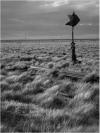Abstract
The doctoral thesis “European-influenced architecture in Patagonia 1879-1955” (upo, Sevilla) extended the perspective on thepatrimonial research, including a systemic interpretation of its intangible components and confirming its inseparable conditionwith the built heritage. The present text is offered as an answer to the interrogation about which intangible heritage replacedthe preexisting culture after the violent conquest and occupation of the territory, assuming that, we are part of a transformationprocess that generated our current hybridity and cultural diversity.Theorists as Marina Waisman, Ramón Gutiérrez, Jorge E. Hardoy and Françoise Choay have guided our inquiries, as well asunesco-icomos documents, however from a Latin American perspective. Given the territorial extension and complexity, the mostnoticeable in the research’s development has focused on the use of the inductive method (applied in previous researches)which allowed us to generalize from local and regional studies.Future investigations must confirm, among other topics, the validity of this heritage in other cultural expressions, answering questionsabout the influence of marginal groups that operated on the construction of everyday life, enriched by other forms of intangible heritage.Apuntes is registered under a Creative Commons Attribution 4.0 International Public License. Thus, this work may be reproduced, distributed, and publicly shared in digital format, as long as the names of the authors and Pontificia Universidad Javeriana are acknowledged. Others are allowed to quote, adapt, transform, auto-archive, republish, and create based on this material, for any purpose (even commercial ones), provided the authorship is duly acknowledged, a link to the original work is provided, and it is specified if changes have been made. Pontificia Universidad Javeriana does not hold the rights of published works and the authors are solely responsible for the contents of their works; they keep the moral, intellectual, privacy, and publicity rights.
Approving the intervention of the work (review, copy-editing, translation, layout) and the following outreach, are granted through an use license and not through an assignment of rights. This means the journal and Pontificia Universidad Javeriana cannot be held responsible for any ethical malpractice by the authors. As a consequence of the protection granted by the use license, the journal is not required to publish recantations or modify information already published, unless the errata stems from the editorial management process. Publishing contents in this journal does not generate royalties for contributors.


